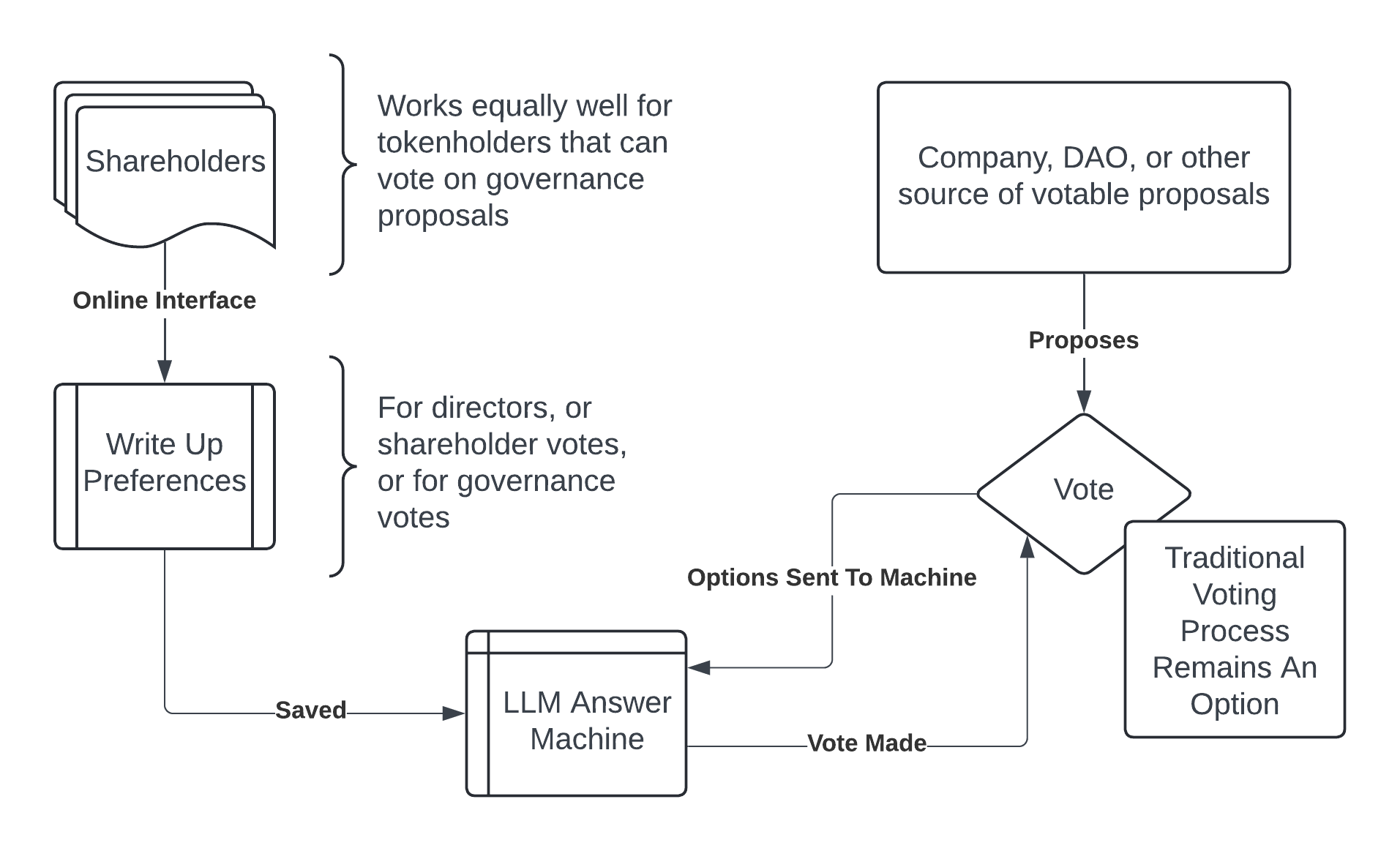
The vast majority of small shareholders don't vote their shares. Many institutional investors do, but even then, many are voting according to recommendations from advisory services. At the individual investor level, votes are essentially meaningless because they're too small in number. And the voting process is uneconomical to them because they don't have the time to consider the candidates or proposals. The return on their investment of time is abysmal. This is a well-known problem in corporate studies. It's also a problem in token governance systems. Is the solution ChatGPT?
The solution isn't of course literally ChatGPT, which is a neat product, but isn't a system of voting. But LLMs like ChatGPT hold the promise of translating high-level goals into selections. Users could specify what they want in directors and then the LLM would pick the directors that best fit this profile. Although imperfect, it's certainly better than having no control at all. And the LLMs would probably do a decent job of selecting the directors that match the shareholder/tokenholder's requirements. Shareholders could appoint proxies that simply execute on the instruction provided by the individual LLM agent, and they could so without even disclosing what the shareholder specified.
The diagram at the top of this blog post shows one way this could work. This same process could be used for all kinds of voting. However imperfect this is, it's surely better than not participating at all. Many people do have preferences about what they'd like to see happen, but they don't have the time or ability to act on these inclinations.
Writing preferences to an LLM like "I want to vote for directors that promise to cut costs" or "I want to vote for governance proposals that increase spending on protocol-level research" or "I want to vote for shareholder proposals that increase transparency into executive pay" or "I want to vote for directors that don't come from Ivy League backgrounds. I'd like to see more diversity on the board so that more viewpoints are reflected." You can imagine all kinds of ways users might want to express preferences, and they could do so using certain templates that might make it easier for them to know what kinds of votes have come before the board or blockchain project in the past.
LLMs like ChatGPT might end up creating the democratic revolution in ownership that shares and governance tokens promise but haven't delivered on.
